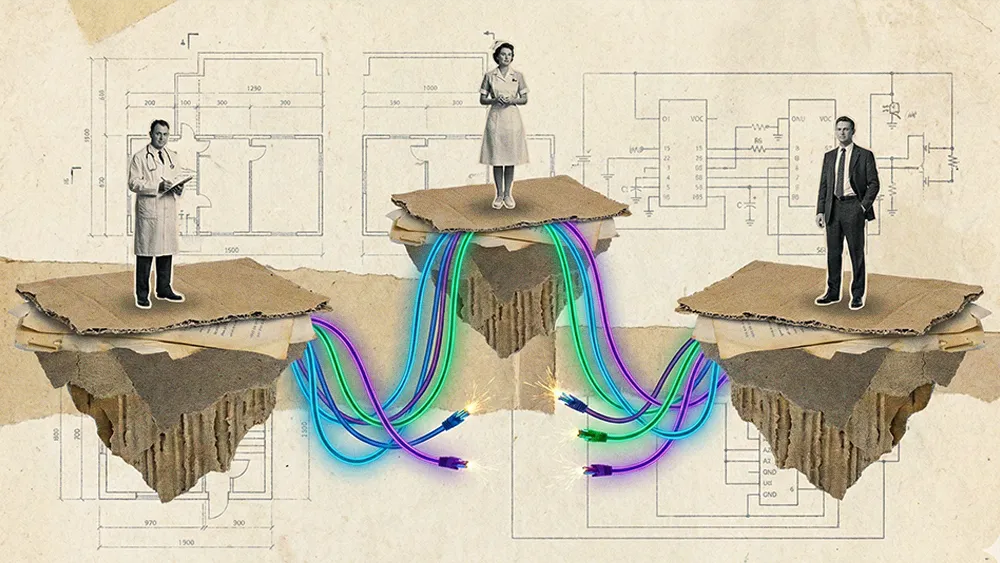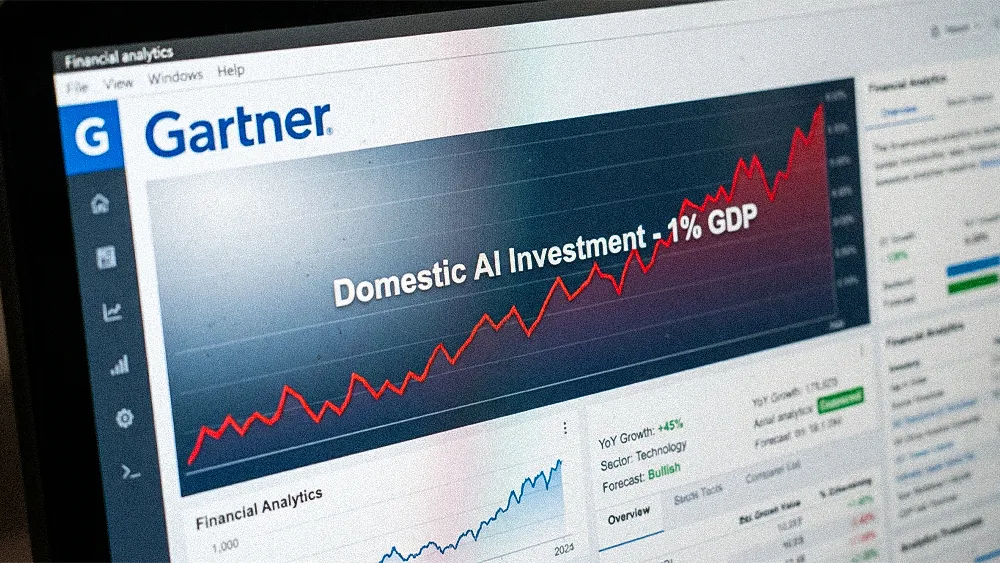An AI-fueled data center surge is kicking off a modern gold rush in Pennsylvania. With economic ripples extending far beyond Big Tech, the impact of this boom is unfolding in two distinct waves. First comes an immediate surge in construction, manufacturing, and skilled trades, followed by long-term growth in local services, retail, and hospitality.
The reason for this boom is energy. Leveraging past investments in natural gas and nuclear power, Pennsylvania is uniquely positioned to power the AI industry, turning its deep infrastructure into a powerful competitive edge.
To understand the view from the ground, we spoke with Jon Pogue, Senior Commercial Relationship Manager at Wells Fargo. With over 20 years of experience in relationship and portfolio management at major financial institutions, Pogue is deeply familiar with the intersection of capital and opportunity. Today, that expertise lends him a unique perspective on the economic changes at hand.
A mighty hand: The state's unique advantage is its energy portfolio, Pogue confirms. But instead of luck, he attributes the advantage to deliberate, long-term investments in its energy sector. “Pennsylvania has made investments that give it a powerful hand. The state is second nationally in both natural gas production and nuclear energy infrastructure. That affordable, reliable energy is precisely what data centers need, and it's why they're coming here.”
To describe his role in the current economy, Pogue uses a metaphor that frames his role not as a creator of economic trends, but as a frontline observer with a clear view of where capital is heading. “I see our role as being like a river guide. We can't control the current, but we have a clear view of where it's flowing.” From his 'river guide' vantage point, Pogue already sees the first ripple effects as local businesses pivot to meet new demand.
First Ripples: Early examples from the supply chain show that the economic shift is already underway, well before any major construction begins, Pogue explains. “The ripple effects are already happening. A steel component manufacturer is shifting capacity to make products for data center servers, and a trucking firm is investing in new materials handling for the projects. These are tangible, localized impacts.”
Building the boom: The most immediate beneficiaries will be local firms involved in the physical buildout, even as national general contractors lead the projects, Pogue explains. Here, he breaks down the construction phase into specific trades to illustrate how the financial benefits will be distributed broadly across the local, non-tech economy. “The site prep, excavation, concrete, and steel will be sourced locally. The electrical and mechanical contractors, all the trades building the infrastructure, are where the boom will really ripple through the local economy.”
While rapid expansion raises questions about the local labor supply, Pogue offers a balanced assessment. The state's existing training infrastructure is a key advantage. But the scale of the boom will eventually test its limits. “Pennsylvania has a good foundation with its community colleges and trade schools, but the reality is that few places in the country can fully meet this level of demand for skilled labor. More investment will be necessary.”
A digital neighborhood: First, an ecosystem of tech-adjacent businesses that benefit from low latency clusters nearby. The secondary boom begins with other tech-focused firms whose business models rely on the low-latency connection that physical proximity provides, he explains. "A secondary ecosystem springs up because companies in fields like cloud computing, financial trading firms, and even gaming all benefit from being physically close to the data centers."
The Ashburn proxy: Once the facilities are built, a second, longer-term ripple effect begins. As a preview of what’s to come, Pogue points to 'Data Center Alley' in Ashburn, Virginia, a market where the data center boom is not slowing down. “Around its data centers, you see the secondary development of retail, hospitality, and other local businesses.”
However, to capture this growth, local businesses must first be financially prepared. Fortunately, many local entrepreneurs already are, according to Pogue. “There’s a ‘muscle memory’ on the ground because most local business owners have been through this before. They’ve seen new opportunities, found new revenue streams, and raised capital to grow.”
Where the money flows: Here, Pogue returns to his central metaphor, adding a new dimension to the role of a banker. It's not just about observing the current, but actively helping businesses navigate it. The role of local financial partners is to act as a bridge, connecting the wave of external investment with the on-the-ground opportunities, he clarifies. “External capital is flowing in from other parts of the country because investors see the opportunity here. Returning to the river guide analogy, our job is to connect that incoming capital with local businesses to help them invest.”
Bringing the conversation full circle, Pogue concludes that this new wave of investment is a direct result of the state’s foundational strengths in energy, connecting its industrial past to its high-tech future. By leveraging its unique assets, Pennsylvania is ensuring the benefits of this digital boom are felt far beyond the server room, creating a new economic chapter for the entire state. “This is a new chapter for Pennsylvania. We created this opportunity by leveraging our Marcellus shale and natural gas infrastructure. It’s a new gold rush for the state.”









